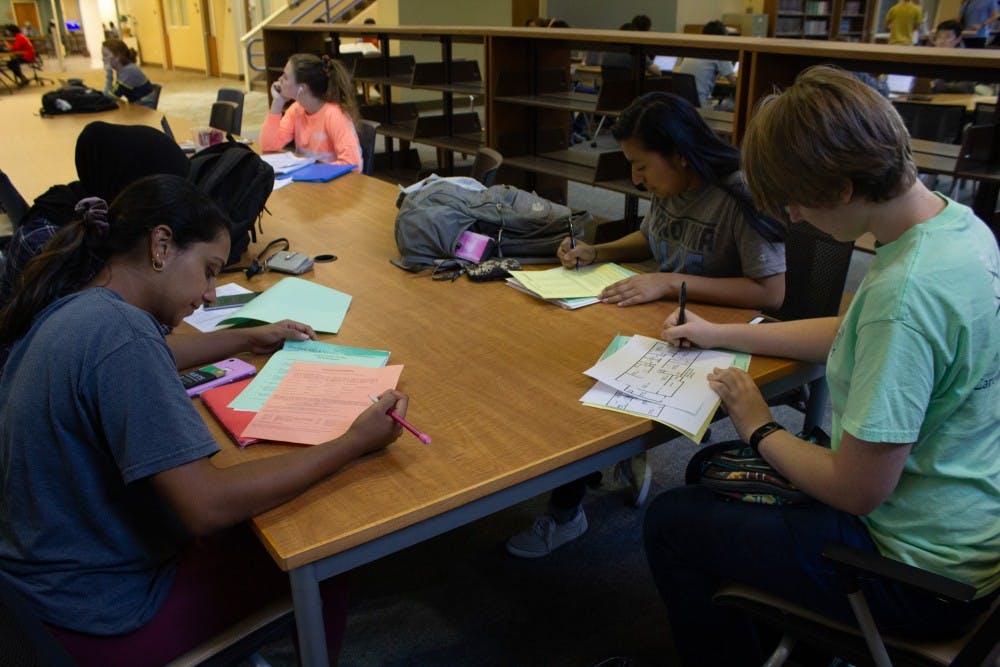Group projects — college students either love them or they hate them.
College in itself can be quite the competitive environment, making collaboration all the more difficult.
With registration right around the corner, students are now having to decide which courses to take next semester. For many, seeing the words “group project” on a syllabus is a major red flag.
“Groups are just like anything else,” said Bradley Hammer, professor of English and comparative literature and director of Writing Assessment and Placement for UNC. “If it’s not designed well or organized well, it’s not going to work well.”
To ensure that students are working together in his class equally, Hammer has his students complete their assignments in Dropbox.
“As a faculty member, you have to stay on top of it, but they’re not children anymore,” Hammer said. “They have to be able to select their own groups.”
For professors and students alike, it seems the biggest issue among group work is a matter of motivation and the impact group members who slack off can have on each person’s individual grade.
“It all just depends on how dedicated the students are to creating a good end product,” said Olivia Cohen, a sophomore majoring in advertising and public relations. “You can’t control other people.”
Jessica Wolfe, professor of English and comparative literature and director of Medieval and Early Modern Studies, said she believes there are more efficient alternatives to graded group assignments.



